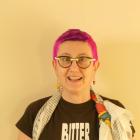Valentina Pellizzer, owpsee executive directress, participated in this years EuroDIG – Pan-European Dialogue on Internet Governance, and has several objections to the very visible gender gap in terms of women participation in the event, and in the IT sector in general. Her commentary was originally written for Diplo Internet Governance Community Blog. We carry the full text of the commentary.
European Dialogue on Internet Governance. Two days conference with speakers coming from all over Europe discussing emergent issues in a multi-stakeholder perspective.
The word dialogue describe EuroDIG as an open space for exchanging visions in an inclusive way on the future of Internet.
Business sector representatives, governments and civil society representatives meet over 2 opening sessions, 5 thematic plenary discussions and 7 thematic workshops. Among the 419 participant less than a forth, approximately 90, were women (source: EuroDIG participants list), the divide increased when we look at the programme list, speakers and key participants from a total of 92 only 23 were women. The divide or gap remain also looking at moderators, 15 men and 4 women and rapporteurs 11 men and 4 woman.
The only exception was represented by remote participation moderators with 10 women and 4 men.
From the final reports on the workshops what also emerges is the traditional distinction of women participating massively in so called non-technical issues, such as child safety and men attending massively so called technical issues such us IPv6.
Speakers and key participants' gender breakdown show the most technical workshop “WS4: IPv6 transition –business impact and governance issues” having no women as speakers and the less technical workshop “WS5: Children and social media –opportunities and risks, rules and responsibilities” enjoying the only majority of women presence with more than 17 women among focal point and contributors and only 6 men!
Apart the encouraging exception of the remote participation moderators, when coming to women participation and representation in Europe clearly exist a gender gap/divide. Women presence in the technology and governance arena of Internet is still small and the divide is equally present in public, private and civil society sector. Moreover, to women, when present, apply a traditional preference for “care” and" non-technical area/issues".
Considering that all European countries had signed the Convention on the Elimination of All Discrimination Against Women (CEDAW) and that, if not all countries, a large majority has gender mechanisms in place for promoting empowerment, positive discrimination and fight against stereotype representation, something still does not work. Women are not present and gender perspective is not part of the agenda.
Women presence is important not for the sake of numbers and statistics but for the simple reason that technology is not neutral and we need a fair representation of genders to be able to look at all interested party and include all perspectives. We all know that gender matters when coming to policy.
It matters in terms of designing appropriate tools, it matters for development issues, it matters for employment and educational policy and schemes.
Women are Internet users, are enrolling in technical faculties, but when comes to works and positions in IT companies their presence remain at the less qualified level, diminishing going to the top towards the most skilled payed job. The same situation is present in government departments and ministries with few exception of north European countries.
EuroDIG has shown that national and regional European forum are still far from implementing their own policy of equal and fair gender representation. We need to reflect on the implication of such a bias and to add to the inclusive multi-stakeholder dialogue of EuroDIG one more layer which is a gender lens for a really inclusive Internet Governance model.
- 5890 views






Add new comment